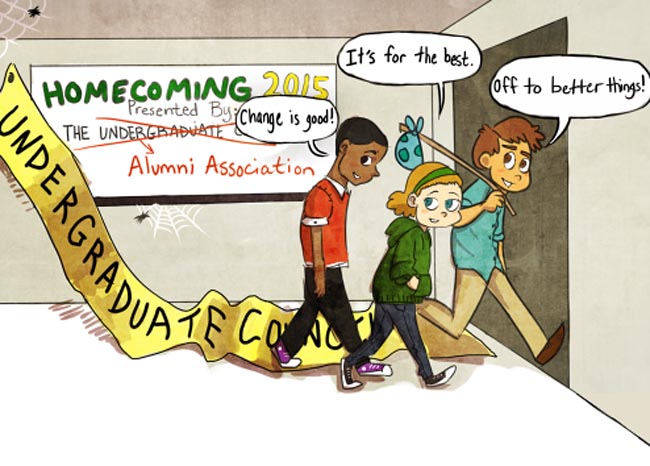In a stunning display of self-awareness, the Undergraduate Council voted to dissolve itself during the Student Assembly’s last session. Given the Undergraduate Council’s often extraneous and convoluted role in the SA, we applaud this mindful decision. If the Senate and the Graduate Council also vote to dissolve the Undergraduate Council, it will bring about a more responsive student government.
The Undergraduate Council’s checkered history presents a highlight reel of organizational snafus, such as last semester’s miscommunicated Homecoming parade. The council is practically invisible; most students do not know their undergraduate representatives and class presidents. As a result, many positions have been left uncontested or unfilled.
Call us Federalists, but the SA can use the Undergraduate Council’s dissolution to streamline and strengthen its decentralized body. With an influx of senators — former members of the Undergraduate Council — the SA can better plan and organize student events, improving accountability and student involvement. The SA’s sessions will be more productive, as each position will have clearly delineated and more concentrated responsibilities.
With SA elections approaching, it is imperative that student voters and candidates understand the structural changes taking place. That means the Senate and Graduate Council need to vote as soon as possible to relieve the Undergraduate Council of its misguided existence, and provide ample time for student candidates to prepare.
In addition to distributing mass emails preceding the election, the SA should create infographics explaining the SA’s new structure. The SA also needs to provide updated position descriptions and possibly eliminate the presidential power to create positions on a whim, which has caused confusion in the past. Students should understand what positions they can vote and run for, as well as the work that the SA does for them.
The Flat Hat editorial board has long argued that the Undergraduate Council is redundant and unnecessary (April 2013, February 2014, October 2014). Last year, we praised the SA for combining the council’s vice president of advocacy and vice president of social affairs into a single position. While it took years, we are pleased that the Undergraduate Council finally took this significant step toward fixing one of its most chronic problems: itself. We only hope that the Senate and Graduate Councils follow suit.

